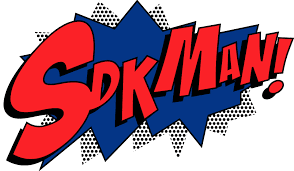Language Version Managers - the Developer Parachutes
Originally posted on the DevObsessed blog at https://www.devobsessed.com/blog/2022-09-28-language-version-manager-parachutes/
Installing multiple language versions (e.g. Java 11, Java 19, Java 8 | Node 8, Node 16 | Python 2, Python 3 | etc) on your machine is scary, and not for the faint of heart. Conquer your fears with the benefit of a developer parachute, by using a Language Version Manager!
As software engineering consultants at DevObsessed, we get asked to help with a various assortment of projects – from legacy codebases running in maybe Java 8 or NodeJS 6, to greenfield creations using the newest versions of Java 19 or NodeJS 16. This isn’t only an issue between companies though, as most organizations have various versions of languages running at any given time too. Managing local installations of Java, Node, Python, Ruby, Elixir, etc can be daunting. In the past, trying out the latest version to check for bugs could lead to a developer’s machine being down for hours at a time. And if a rollback to a previous version was needed that could take even longer! Wouldn’t it be great if you could have a parachute with you on your mission, so that if anything goes wrong you can easily save yourself and proceed with confidence? Language Version Managers are your answer. Many version managers exist, and in this post we’ll show you how Sdkman for Java, and NVM for Node can provide you the courage to easily utilize multiple language versions without any worry in the process.
Backstory
To set the scene, you should know that originally this blogpost was going to be about the recent release of Java 19. It would be a story about the newest and latest Java features, maybe how to use them, and probably why they would make it great for you to upgrade.
Without thinking about it, using Sdkman with a quick sdk install java 19-open and my MacbookPro was running the newest Java within seconds. It was so easy to upgrade to the cutting edge version, that it was summed up easily in a single tweet:

Not until this moment did I dive in to see that Java 19 was more of an incremental release. Some bugfixes for sure, but mostly it includes just some Preview and Incubator features (hiding behind feature flags) that won’t be fully live until Java 20 or beyond.
So after a few moments of trying out Gradle and IntelliJ support, I quickly reverted back to my previous Java version with sdk default java 18.0.2.1-open. No fuss and no worry. Then it dawned on me how before Sdkman this would have taken me probably many minutes if not hours of work to flip back and forth of Java installation versions.
Sdkman for Java

Sdkman is the best Language Version manager for Java and all JVM languages, to include Groovy, Kotlin, and more. Don’t use brew or Oracle or some other installer on your macbook. Instead, install Sdkman and use a few commands to manage the version that you use.
- Use the install instructions for Sdkman from https://sdkman.io/
sdk ls javato see the various versions of Java that are availablesdk install java 18.0.2.1-opento install the Java18 OpenJdk version (or pick your favorite distribution from Azul or Microsoft or Amazon, etc)- The
usekeyword can switch the version for a single shell window, likesdk use java 19-open - The
defaultkeyword will setup a default for your whole machine, likesdk default java 18.0.2.1-open - Similarly use the same commands for Groovy
sdk ls groovy, or Kotlin, or any of the 20+ various JVM languages!
NVM for NodeJS

In the Node world, there are a few options like NVM, N, FNM, and more. I’ve been a longtime user of NVM, so we’ll detail those instructions for use here:
- While unofficially supported, nvm can be installed with homebrew using
brew install nvm- Follow any additional instructions to setup your shell in .zsh or .bash_profile or whatever shell you use
- Or find other installation instructions at https://github.com/nvm-sh/nvm#install–update-script
nvm lsto see the available Node versionsnvm install --ltsto get the latest stable LTS (Long Term Support) versionnvm install v8.17.0or similar to get a specific versionnvm use v8.17.0or similar to use a specific version in a single shell windownvm alias default v16.17.0or similar to set a default version
Wrap-up
There are other various version managers for other languages. Ruby has rbenv or RVM, Python has pyenv, Elixir has kiex, and many more. No matter what language you are on, the key is to find a language installation manager to handle the various versions that you may need to use.
In the Java and Node worlds, Sdkman and Nvm are the parachutes you need for confidence, courage, and to save you from configuration management worry!
